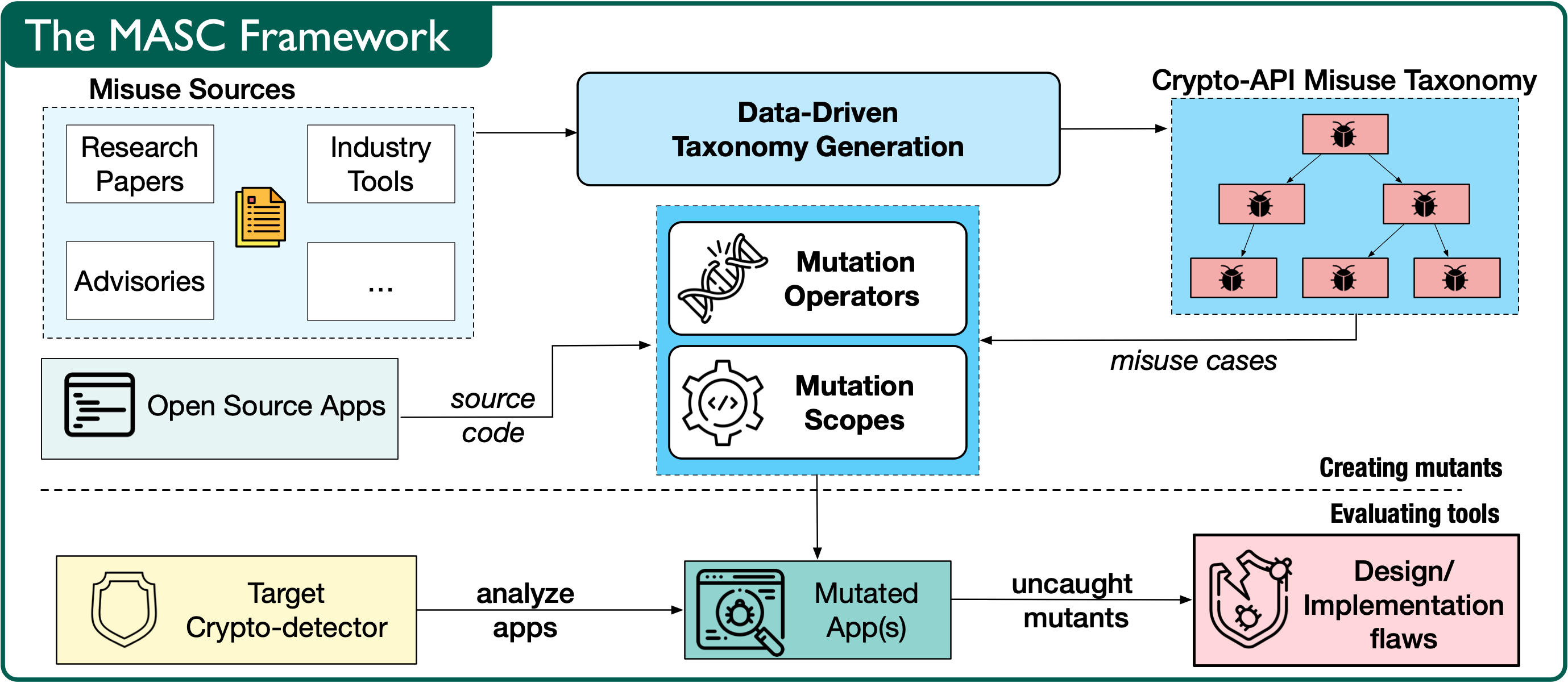Table of Content
Research Projects
MASC

Mutation Analysis for evaluating Static Crypto-API misuse detectors, MASC in short, is a framework that is built on Java, Abstract Syntax Tree, Code Generation Techniques, and Java Reflection to create mutations of cryptographic API misuse and inject them in Java Source Code. Over the years, MASC has been built to be both maintainable and extensible. You can create your own mutation operators and simply plug them in, for example!
MASC has been used in two academic papers that were published in Proceedings of the 2022 IEEE Symposium on Security and Privacy (S&P’22) and in Proceedings of the ACM Joint European Software Engineering Conference and Symposium on the Foundations of Software Engineering (ESEC/FSE’23).
mSE
An open source project based on Java, it uses Abstract Syntax Tree (AST) to mutate Android application source code and inserts data leaks. It has several nifty features, such as mutation schemes that define interesting ways to place data leaks, thus helping you evaluate static-analysis based data leak detectors.
This project has been used in two academic papers that were published in ACM Transactions of Privacy and Security (TOPS) 2021 and 43rd IEEE/ACM International Conference on Software Engineering (ICSE’21).
Mobile-Monkey
The team members of this innovation fund project are Dr. Kazi Sakib, Md. Rayhanur Rahman and me, Amit Seal Ami. The target was to help make mobile application testing easier for both beginner and expert level mobile app developers. We targeted primarily Android app developers and created MobiCoMonkey, previously known as MobileMonkey. The project concluded satisfactorily in 2017, with a publication at the ICSE’18 Demonstrations Track Paper.
Open Source Projects
In my spare time, I spend time creating and maintaining open source projects that changed lives. Don’t believe me? Read on!
Brightness Controller 

Almost a decade old system that has been downloaded over 160K times and still in active use today, Brightness Controller allows you to control Brightness of your Primary, Secondary and more Displays in Linux. It is a software based dimmer. Due to its usefulness, it has been featured in OMG! Ubuntu! and many other linux related websites, has been downloaded over 160K times from PPA only, and people with sensitive eyes have emailed me that this software “saved their eyes” and “the software makes it possible to use computer”.
Internet Information Services Express server Manager (IISEM)

IIS Express Manager provides a front-end to the existing functionality of IIS Express Server of Windows. It has been covered by Microsoft MVP, discussed in Microsoft Community Blogs and referenced at various other websites during its active period.